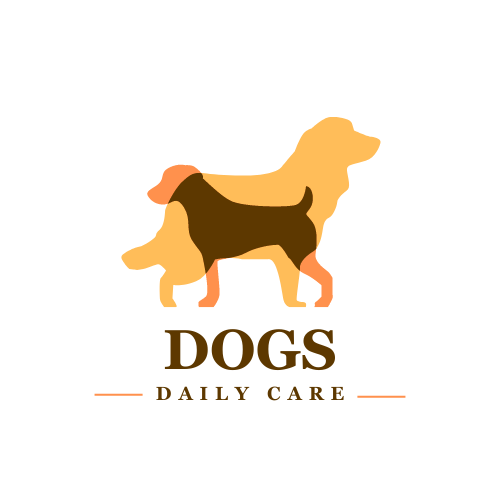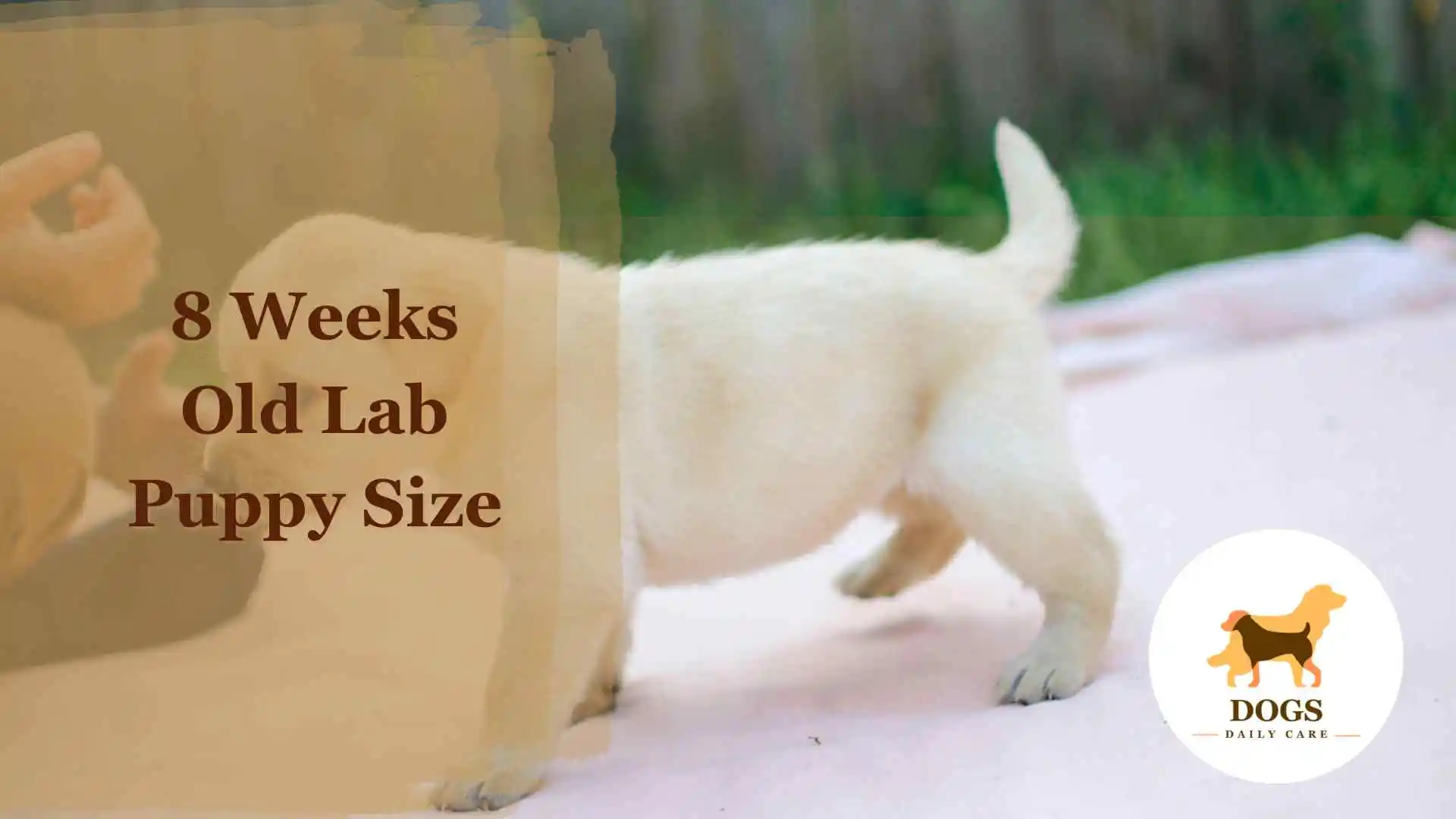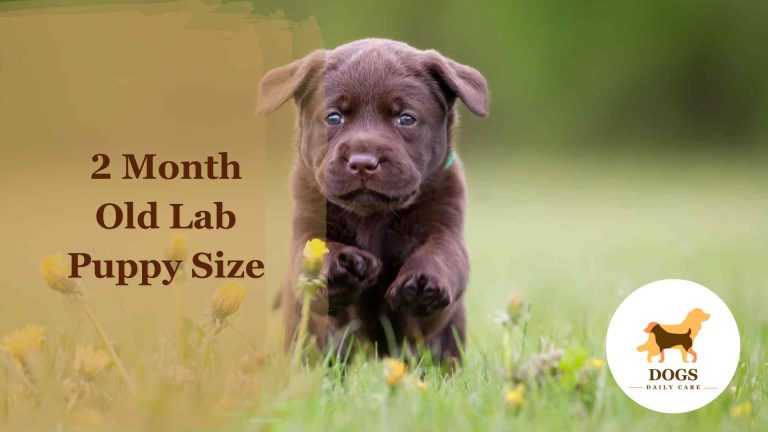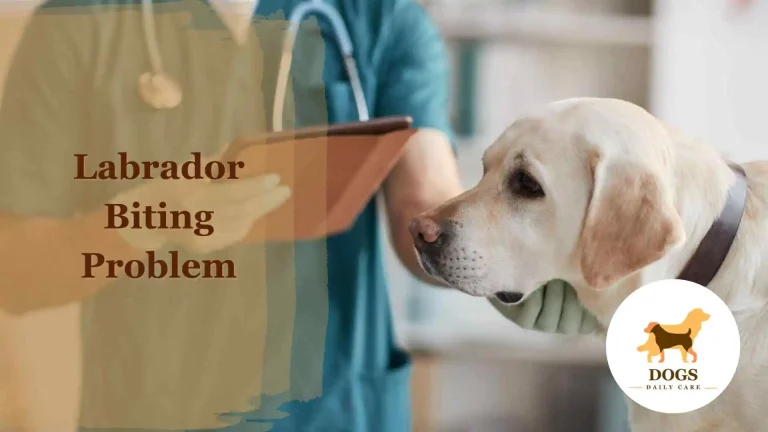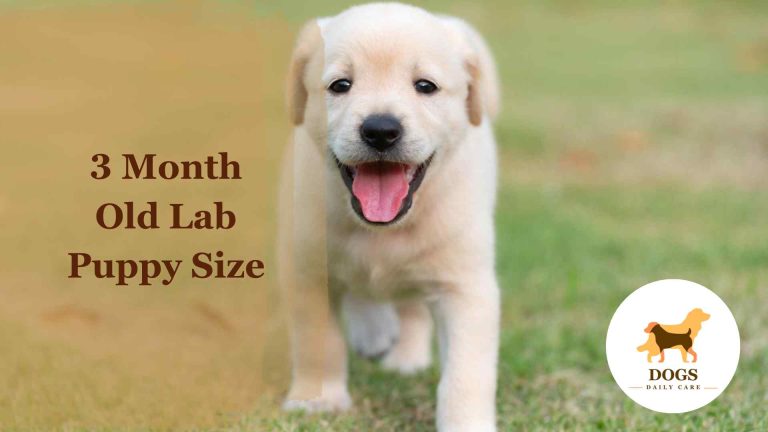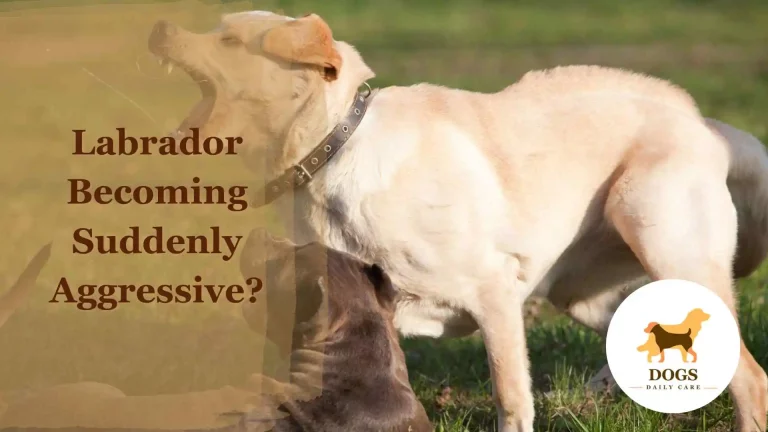8 Weeks Old Labrador (Lab) Puppy Size – All You Need To Know
Welcoming an 8-week-old Labrador puppy into your home is a journey filled with joy and a few surprises. At this tender age, these adorable bundles of fur are not just growing rapidly, but also learning to interact with the world around them. It’s a crucial time for both puppy and owner, as these early weeks are foundational for their physical and behavioral development.
If you’re curious about what to expect in terms of size and growth patterns, you’re not alone. Many new and prospective puppy owners find themselves wondering just how big their little Lab will get in this initial stage.
Understanding the size and growth trajectory of your 8-week-old Lab is vital for several reasons. Not only does it help in preparing the right environment and diet for them, but it also gives you insights into their overall health and development. In this comprehensive guide, we will delve into the average size of an 8-week-old Labrador puppy, factors that influence their growth, and what you can do to ensure they thrive during this adorable, yet crucial phase of puppyhood.
Expected Size of an 8 Week Old Lab Puppy
When you bring an 8-week-old Labrador puppy home, one of the first questions is often about their size.
How big should they be? At this age, while individual puppies can vary, there’s a general range you can expect.
Average Size Table
Remember, these are average figures. Factors like genetics, nutrition, and overall health play a big role in a puppy’s size.
What Influences Size?
- Genetics: A puppy’s size is heavily influenced by the size of its parents.
- Nutrition: Proper nutrition is vital for healthy growth.
- Health: Regular check-ups ensure your puppy is growing normally.
Why Size Matters
Knowing your Lab puppy’s size is crucial for several reasons. It helps in choosing the right size crate, planning their diet, and understanding their health needs. If your puppy is significantly smaller or larger than these averages, it might be a good idea to consult a vet.
In summary, while there is a range of what’s ‘normal,’ each Lab puppy is unique. Monitoring their growth helps ensure they are on track and thriving in their new home.
Physical and Behavioral Development at 8 Weeks
At 8 weeks old, your Labrador puppy is at a fascinating stage of development. Let’s explore what you can expect in terms of their physical and behavioral growth.
Physical Development
- Teething: Your puppy will start teething around this age. You might notice them chewing more.
- Motor Skills: They are becoming more coordinated and love to explore.
- Sensory Development: Their senses are almost fully developed. They respond actively to sights, sounds, and smells.
Behavioral Development
Social Skills: This is a key time for socializing your Lab puppy. They learn to interact with humans and other pets.
Playfulness: Expect lots of playful behavior. Puppies at this age love to play with toys, people, and other animals.
Training: They start to understand basic commands. It’s a great time to start gentle, positive reinforcement training.
Key Tips
- Patience: Your puppy is still learning about the world. Be patient and consistent in your approach.
- Safe Environment: Make sure their play area is safe and puppy-proofed.
- Positive Interactions: Encourage positive interactions with people and other pets to aid their social development.
Remember, every puppy is unique. Some may develop faster or slower than others. The key is to provide love, care, and the right environment for your little Lab to thrive.
Feeding and Nutrition for Optimal Growth
Proper nutrition is a cornerstone in ensuring your 8-week-old Labrador puppy grows up healthy and strong. Let’s break down what your puppy needs during this critical stage.
Key Nutritional Needs Table
Feeding Guidelines
- Frequency: Feed your puppy 3-4 times a day. Regular feeding helps with digestion.
- Portion Size: Follow the guidelines on the puppy food package. Adjust as needed based on your puppy’s growth and activity level.
- Clean Water: Always have fresh water available.
What to Avoid
- Human Food: Some human foods can be harmful to puppies.
- Overfeeding: Avoid overfeeding to prevent obesity.
Consult a Vet
It’s always a good idea to talk to a vet about your puppy’s diet. They can provide personalized recommendations based on your puppy’s specific needs.
Remember, feeding your Labrador puppy the right food in the right amount is key to their growth and health. Keep their diet balanced and monitor their growth to ensure they are getting everything they need.
Health Considerations and Vet Visits
Keeping your 8-week-old Labrador puppy healthy involves more than just good nutrition and exercise. Regular veterinary care is essential. Let’s look at the key health considerations and the importance of vet visits during this stage.
Health Checklist Table
Why Regular Vet Visits Matter
- Early Detection: Vets can spot and address health issues early.
- Growth Monitoring: Ensure your puppy is growing properly.
- Advice: Get expert advice on care, diet, and training.
Prep for Vet Visits
- Record Keeping: Keep a record of your puppy’s health, diet, and behavior.
- Questions: List any questions or concerns you have for the vet.
Regular check-ups with a veterinarian are crucial for your Labrador puppy’s health. They help in keeping track of your puppy’s growth, vaccinations, and overall well-being. Remember, a healthy puppy is a happy puppy!
Frequently Asked Questions (FAQs) About 8 Week Old Lab Puppies
Q1. How much should an 8-week-old Labrador puppy eat?
Answer: At 8 weeks old, a Labrador puppy typically eats about 1/2 cup of puppy food, three to four times a day. Always check the food packaging for specific feeding instructions and adjust based on your puppy’s activity level and growth.
Q2. How long do 8-week-old Lab puppies sleep?
Answer: 8-week-old Lab puppies need a lot of sleep to grow and develop properly. They usually sleep around 18-20 hours a day, broken up throughout the day and night.
Q3. Can I start training my 8-week-old Lab puppy?
Answer: Yes, you can start basic training with your 8-week-old Lab puppy. Focus on simple commands like ‘sit’, ‘stay’, and ‘come’. Keep training sessions short, positive, and fun.
Q4. What are common health problems in 8-week-old Lab puppies?
Answer: Common health issues include digestive troubles, parasites like fleas and worms, and minor skin irritations. Regular vet check-ups and vaccinations help keep these problems at bay.
Q5. Is it normal for my 8-week-old Lab to be teething?
Answer: Yes, it’s normal. Labrador puppies start teething around 8 weeks old. Provide them with appropriate chew toys to ease their discomfort and protect your belongings.
Conclusion
As we wrap up our guide on the 8-week-old Labrador puppy, remember that this stage is a special time full of growth and discovery. Your little Lab is not just growing in size, but also in personality and intelligence. Embracing and nurturing this phase will set the foundation for a healthy, happy, and well-behaved adult Labrador.
Regular check-ups, proper nutrition, and early training are key to ensuring your puppy thrives. Most importantly, enjoy the journey! These early weeks will pass quickly, and before you know it, your tiny puppy will be a fully grown companion.
Navigating the world of puppy care can be challenging, but it’s also incredibly rewarding. Keep learning, stay patient, and provide lots of love and care to your furry friend. If you have any concerns or questions, always feel free to consult with a veterinarian. They are your best resource for ensuring the health and well-being of your growing Labrador puppy.
